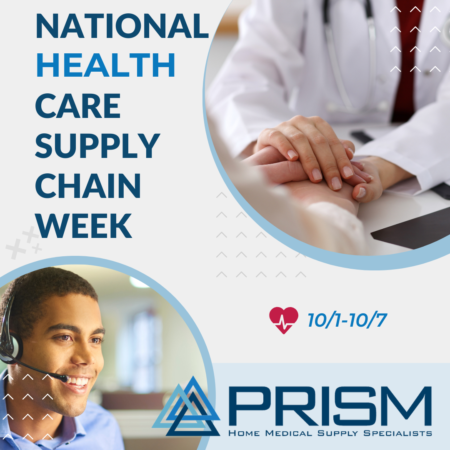The Importance of Supply Chain Management in Health Care
 The health care supply chain is an integral part of the industry and plays a critical role in providing quality care to patients. This week, we recognize Health Care Supply Chain Week, a time to celebrate the accomplishments of those in the field and recognize the impact they have on improving the quality of care. In this blog post, we will take a closer look at the importance of supply chain management in health care and how it contributes to better patient care.
The health care supply chain is an integral part of the industry and plays a critical role in providing quality care to patients. This week, we recognize Health Care Supply Chain Week, a time to celebrate the accomplishments of those in the field and recognize the impact they have on improving the quality of care. In this blog post, we will take a closer look at the importance of supply chain management in health care and how it contributes to better patient care.
Supply chain management is essential in health care because it ensures the smooth and efficient flow of medical supplies, equipment, and medications. It plays a crucial role in ensuring that hospitals and other healthcare facilities have the necessary resources to provide quality care to patients. Effective supply chain management helps in reducing costs, minimizing waste, and optimizing inventory levels. It also ensures that medical products are sourced from reliable and trustworthy suppliers. By streamlining the supply chain, healthcare providers can focus on their core mission of delivering excellent patient care. Supply chain management is an essential component in delivering quality healthcare services.
Health care supply chain management faces several challenges that can impact the quality and efficiency of patient care. One of the main challenges is the complex nature of the healthcare industry itself, with multiple stakeholders, including hospitals, clinics, suppliers, and manufacturers. Coordinating the supply chain among these various entities can be challenging, as different organizations may have different processes, systems, and priorities. Additionally, the need for real-time data and information sharing is crucial, as delays or errors in the supply chain can have significant consequences for patient care. Other challenges include the need for cost containment and finding reliable suppliers. Overcoming these challenges requires collaboration, transparency, and the implementation of innovative technologies.
Effective health care supply chain management has numerous benefits that contribute to improved patient care. First and foremost, it ensures that hospitals and healthcare facilities have a steady supply of medical resources, minimizing delays and ensuring timely care. By optimizing inventory levels and reducing waste, it also helps reduce costs and increase efficiency, ultimately leading to more affordable and accessible healthcare. Additionally, effective supply chain management enables healthcare providers to maintain reliable relationships with trusted suppliers, ensuring the quality and safety of medical products. Overall, an efficient supply chain allows healthcare organizations to focus on their core mission of delivering excellent patient care, resulting in better health outcomes for individuals and communities.
Technology plays a crucial role in enhancing health care supply chain management. With the advent of innovative solutions, healthcare organizations can now leverage technology to streamline processes and improve efficiency. Automated inventory management systems, for example, enable real-time tracking of medical supplies, reducing the risk of shortages or excess inventory. RFID tracking allows for easy identification and location of items, minimizing errors and improving inventory accuracy. Additionally, advanced analytics and data-driven decision-making tools help healthcare providers identify areas for improvement and optimize inventory levels. By embracing technology, health care supply chain management can become more agile, transparent, and responsive, ultimately leading to better patient care and outcomes.
